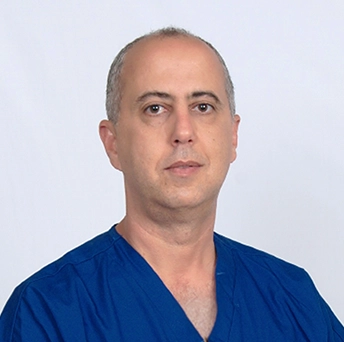The Comprehensive Guide to Finding and Working with an Aesthetics Mentor
What is an Aesthetics Mentor
An aesthetics mentor is an experienced cosmetic medical professional who guides and trains another practitioner in the art and science of aesthetic treatments. This article is about how to find an aesthetics mentor.
Their role goes beyond basic instruction—they guide mentees through procedures, patient consultations, and even business decisions. They act as role models, ensuring mentees develop both skills and ethics.
Mentors offer customized feedback and one-on-one support that helps learners grow faster and more safely. Unlike general instructors, they maintain ongoing relationships with their mentees.
This mentorship fosters professional confidence and creates lasting value in an aesthetic career.
Whether you’re learning Botox, fillers, or skin therapies, a mentor ensures you do it correctly. They watch over your early steps, correct errors gently, and celebrate your wins.
The result is a solid, confident start to your aesthetics journey.
Table of Contents
1. Why You Need an Aesthetics Mentor
2. Strategic Benefits of Mentorship in Aesthetic Careers
3. How to Find the Best Hands-On Aesthetics Mentor in Florida (Dr. Dahabra)
4. Accelerated Skill Development and Knowledge Acquisition
5. Gaining Valuable Industry Insights
6. Professional Growth
7. Hands-On Botox and Fillers Training: Building Core Injection Skills
8. Diverse Aesthetic Treatments and Conditions Covered in Mentorship
9. Ensuring Patient Safety: Mitigating Risks Through Mentorship
10. Mastering Patient Consultation and Recovery Guidance
11. Building a Professional Network and Reputation via Mentorship
12. Certification and Credentialing: Navigating Requirements with Your Mentor
13. Evaluating Aesthetics Mentors: Reviews, Testimonials, and Red Flags
14. Long-Term Career Success and Fulfillment Through Aesthetics Mentorship
15. Factors Affecting Aesthetics Mentorship Costs
16. Frequently Asked Questions (FAQs)
17. Conclusion
18. References
1. Why You Need an Aesthetics Mentor
Mentorship eliminates the fear of living alone in a complex and competitive industry.
A mentor is a personal guide who helps you avoid common mistakes and accelerate your learning curve. Their presence assures you that you’re on the right path.
New injectors often struggle with technique, consultation, and decision-making. Having a mentor means getting practical, real-time tips with instant feedback.
This boosts your confidence and prepares you to treat patients safely and effectively.
In a competitive field like aesthetics, a mentor is your competitive edge. They help you build skills faster, grow your professional network, and create a solid reputation.
With a mentor, you’re never guessing—you learn with intention.
2. Strategic Benefits of Mentorship in Aesthetic Careers
Mentorship in aesthetics is a career accelerator.
It helps you develop a focused learning strategy, avoid costly missteps, and achieve goals faster. You gain structured guidance that keeps your progress on track.
Strategically, a mentor connects you with the right people, from vendors to employers. They share business knowledge that helps you understand pricing, inventory, and patient flow.
These insights are crucial for anyone looking to open a clinic or grow in aesthetics.
Your mentor’s endorsement also boosts your credibility in the industry. Patients and peers respect your training lineage, especially when it’s from a reputable mentor.
This credibility is priceless when building a long-term career in cosmetic medicine.
3. How to Find the Best Hands-On Aesthetics Mentor in Florida (Dr. Dahabra)
To find the right mentor, start with research and local networking in Florida’s vibrant aesthetics scene.
Look into med spa leaders, aesthetic trainers, and physicians offering mentorships. One standout is Dr. Chadi Dahabra, a renowned trainer with decades of experience.
Search for mentors who offer actual hands-on experience with live models. The best programs provide real-time feedback and let you inject under supervision.
Reading aesthetics mentor reviews and testimonials helps verify training quality.
Don’t hesitate to reach out directly to mentors with a professional email. Express your goals and willingness to learn.
A mentor like Dr. Dahabra often looks for students who are passionate and committed to excellence.
4. Accelerated Skill Development and Knowledge Acquisition
With a mentor, you acquire practical skills far faster than through self-study or observation alone.
They help you understand the nuance of injection depth, placement, and anatomy. You gain confidence not just in how to inject but also in why.
Mentors provide a structured approach to learning, prioritizing foundational techniques first. As you master these basics, they introduce advanced techniques safely.
This layered learning model speeds up your growth without overwhelming you.
Additionally, mentors share their personal learning resources and tips. These often include proprietary methods, clinical insights, and advanced safety protocols.
You gain wisdom built from years of real-world experience condensed into weeks or months.
5. Gaining Valuable Industry Insights
Mentors give you access to knowledge not found in textbooks or weekend courses.
They teach you how to navigate the real-world business side of aesthetics—from pricing services to managing patient expectations. These lessons come from their direct experience.
You’ll also learn how trends evolve and how to stay ahead. Mentors often have firsthand access to new products, technologies, and treatment techniques.
By working with them, you get early exposure to innovations in the field.
Key insights include understanding how to build patient relationships, handle complaints, and foster retention. Your mentor teaches you soft skills that ensure long-term client loyalty.
These are the things that truly build your aesthetic brand.
6. Professional Growth
Mentorship shapes not just your skills but your mindset as a provider.
You learn critical thinking, problem-solving, and how to evaluate each patient holistically. These traits help you grow into a trusted and ethical aesthetic professional.
Over time, your confidence and leadership grow. Mentors often encourage mentees to lead small projects or teach others.
These opportunities help you step into your future role as a leader or trainer in aesthetics.
Professional growth also includes balancing work, continuing education, and self-care. A mentor will model that balance for you.
Their encouragement fosters resilience and motivation as you advance.
7. Hands-On Botox and Fillers Training: Building Core Injection Skills
Nothing replaces the value of hands-on Botox and filler training.
You learn injection angles, depth, and technique by actually doing the procedures under supervision. This real-time guidance prevents errors and builds lasting muscle memory.
Mentors show you how to inject in different facial zones and adjust techniques based on anatomy. You’ll learn to select products, dose correctly, and minimize side effects.
These are skills best taught through direct experience.
You’ll also learn to prep your workspace, communicate with patients, and follow safety steps. Mentors instill habits that prevent complications and ensure excellent results.
Over time, these practices become second nature.
8. Diverse Aesthetic Treatments and Conditions Covered in Mentorship
Great mentors expose you to more than just injections—they show you the aesthetic toolbox.
You may observe chemical peels, laser treatments, microneedling, and skin tightening procedures. This makes you a more versatile provider.
Each treatment comes with different indications, techniques, and risks. Mentors help you decide the best options for specific skin conditions and patient types.
You’ll also learn how to combine treatments for optimal results.
Understanding the full range of aesthetic conditions ensures you become a well-rounded practitioner. Whether treating volume loss, pigmentation, or texture issues, you’ll know how to create tailored plans.
That’s the power of comprehensive mentorship.
9. Ensuring Patient Safety: Mitigating Risks Through Mentorship
Patient safety is the cornerstone of aesthetics, and mentors take it seriously.
They train you in facial anatomy, danger zones, and injection safety techniques. These lessons prevent serious complications and build your confidence.
You’ll also learn emergency protocols—like handling filler occlusions or allergic reactions. Mentors walk you through real scenarios or simulations.
That way, you’re prepared even before facing your first complex case.
Through repetition and feedback, safety habits become part of your routine. From aspirating needles to post-procedure care, mentors emphasize protocols.
This attention to detail creates safer experiences for your future patients.
10. Mastering Patient Consultation and Recovery Guidance
Consulting with patients is an art—and a mentor teaches you how to do it gracefully.
You’ll learn to listen, educate, and manage expectations in one conversation. Mentors model how to earn trust while setting realistic outcomes.
You’ll also practice guiding patients on treatment plans based on budget, timing, and goals. Mentors help you explain options clearly and with confidence.
This increases patient satisfaction and reduces misunderstandings.
After treatments, recovery guidance is equally important. You’ll be trained on how to instruct patients about bruising, swelling, and what to expect.
These soft skills are what build strong, lasting relationships with your clientele.
11. Building a Professional Network and Reputation via Mentorship
A mentor often introduces you to their industry professionals, vendors, and peers network.
This expands your reach and opens doors to future opportunities. It can also lead to collaborations, job offers, or co-teaching roles.
Being associated with a reputable mentor boosts your professional standing. Their endorsement can make employers and patients more confident in your abilities.
This kind of association is beneficial when you’re just starting.
Many mentees go on to build thriving businesses or gain speaking roles at events—all thanks to their mentor’s connections. Reputation and visibility are critical in aesthetics.
A mentor helps you grow both faster and with integrity.
12. Certification and Credentialing: Navigating Requirements with Your Mentor
Navigating aesthetics certifications can be confusing, but mentors simplify the process.
They guide you on which certificates are valuable and how to obtain them. This includes everything from Botox and filler training to laser safety courses.
Mentors help you meet state-specific requirements, such as those in Florida, regarding supervision or autonomous practice. They may even act as your supervising physician or NP.
This guidance keeps your practice compliant and protected.
Some mentors also assist in preparing for advanced exams like CANS or offer CME-accredited programs. With their help, you avoid missteps and get properly credentialed.
This ensures you’re both skilled and officially recognized in your field.
13. Evaluating Aesthetics Mentors: Reviews, Testimonials, and Red Flags
When evaluating mentors, always check testimonials and aesthetic mentor reviews.
Look for feedback highlighting hands-on practice, personalized guidance, and successful mentees. Positive patterns in reviews often signal a trustworthy mentor.
Beware of red flags like vague course descriptions, pushy sales tactics, or high student-to-trainer ratios. A quality mentor will be transparent, communicative, and supportive.
They should be accessible for questions and provide clear learning goals.
Make sure the mentor actively practices and stays current with industry standards. Observing a training session or asking for a trial shadow day can help.
The right mentor will welcome your diligence and respect your commitment.
14. Long-Term Career Success and Fulfillment Through Aesthetics Mentorship
The impact of mentorship doesn’t stop after training—it echoes throughout your career.
You’ll use your mentor’s teachings daily, from technique to ethics. Their wisdom becomes the bedrock of your professional identity.
Many mentees go on to open clinics, teach others, or become mentors themselves. They often maintain close ties with their original mentors, forming lifelong professional bonds.
This cycle of growth enriches the aesthetic community.
Mentorship is not just about skill—it’s about fulfillment. Helping patients feel beautiful and confident becomes more meaningful when guided by someone who believes in you.
With the right mentor, you don’t just succeed—you thrive.
15. Factors Affecting Aesthetics Mentorship Costs
Factor Explanation Impact on Cost
Mentor’s Experience More experienced mentors charge more for their expertise. Higher experience = higher cost.
Training Length Longer mentorships involve more time and resources. Longer duration = higher overall cost.
Hands-On Practice Real patient practice requires supervision and materials. More hands-on = more expensive.
Class Size One-on-one or small groups provide more attention. Smaller groups = higher fees per person.
Curriculum Scope Covering more treatments increases the training depth. Broader scope = more costly.
Location Programs in major cities often charge premium rates. High-demand areas (e.g., Miami) = higher cost.
Included Materials Supplies like Botox and filler may be included or extra. Materials included = higher price.
Certification Provided Programs offering certificates or CME credits add value. Certifications = higher program fees.
Post-Training Support Ongoing mentorship or follow-up raises program value. Continued support = increased cost.
Mentor Reputation High-profile mentors attract more interest and charge more. Greater demand = premium pricing.
16. Frequently Asked Questions (FAQs) about How To Find An Aesthetics Mentor
Q1. What is an aesthetic trainer?
Concise Answer: An aesthetic trainer is a licensed medical professional who teaches cosmetic procedures like Botox and fillers.
Detailed Answer: Aesthetic trainers are usually experienced injectors—physicians, nurse practitioners, or RNs—instruct others in safe and effective aesthetic treatments. They provide hands-on training, guidance in facial anatomy, and mentorship in mastering injection techniques.
Their role is crucial in ensuring new practitioners develop technical skills and confidence.
Q2. How much does aesthetic training cost?
Concise Answer: Aesthetic training costs range from $500 to over $5,000 depending on course length, depth, and hands-on practice.
Detailed Answer: Basic introductory courses with minimal hands-on practice are often cheaper, while comprehensive mentorship programs with live patient experience cost more. Pricing also depends on the instructor’s expertise and the location of the training.
In high-demand areas like Florida, costs may be higher due to demand and facility quality.
Q3. What type of NP can do aesthetics?
Concise Answer: Any licensed nurse practitioner can perform aesthetics with proper training and compliance with state laws.
Detailed Answer: Family Nurse Practitioners (FNPs) and Adult-Gerontology NPs are most commonly seen in aesthetics, but other NP specialties can also practice if they receive cosmetic training. What matters most is the scope of practice and meeting training standards.
In Florida, NPs can perform many aesthetic procedures independently if they meet supervision or autonomous practice requirements.
Q4. What certifications do you need for aesthetics?
Concise Answer: You need medical licensure plus certificates from accredited aesthetic training programs.
Detailed Answer: To perform aesthetic procedures, practitioners must first be licensed as a physician, NP, PA, or RN (with proper supervision). After that, certification in specific treatments like Botox, dermal fillers, or lasers is obtained through hands-on courses.
Optional certifications such as CANS or CME-accredited diplomas further enhance credibility and patient trust.
Q5. How can I find an aesthetics mentor in Florida?
Concise Answer: You can find an aesthetics mentor through networking, training programs, and direct outreach to experienced injectors.
Detailed Answer: Attend aesthetic events, join Florida-based aesthetic communities, and contact well-known local trainers or med spa professionals. Many mentors list their programs online or offer shadowing opportunities for licensed professionals.
You can also request introductions through colleagues or training schools you’ve attended.
Q6. Can estheticians do Botox or fillers in Florida?
Concise Answer: Estheticians cannot administer Botox or fillers in Florida.
Detailed Answer: These procedures are considered medical treatments and require a licensed medical professional such as a doctor, NP, PA, or RN under supervision. Estheticians are limited to non-invasive skin care services like facials and peels.
Performing injectables without proper licensure can result in legal penalties and risks to patient safety.
Q7. How long does it take to learn Botox and filler injections?
Concise Answer: Learning the basics can take days, but true proficiency usually takes several months of practice.
Detailed Answer: Most beginners attend a 1–3 day course to start, but hands-on repetition under supervision is essential to build muscle memory and confidence. Most develop safe and effective techniques within 3–6 months of consistent injecting.
Ongoing experience and advanced training are needed for mastery.
Q8. How do I become an aesthetic nurse practitioner?
Concise Answer: You must become an NP through graduate nursing education and then train specifically in aesthetic procedures.
Detailed Answer: Start with a BSN, become a licensed RN, and complete a nurse practitioner program. After certification, take hands-on courses in Botox, fillers, and other treatments to specialize in aesthetics.
Many NPs gain experience working in medspas or under a skilled mentor before practicing independently.
Q9. Are hands-on aesthetics training courses worth it?
Concise Answer: They are essential for developing real-world skills and confidence in aesthetic procedures.
Detailed Answer: Hands-on courses allow you to practice injections on models with immediate feedback from experienced trainers. They help you develop muscle memory and learn practical safety tips not covered in theory alone.
These programs often result in quicker and more confident clinical performance.
Q10. Can I learn cosmetic injection techniques without a mentor?
Concise Answer: You can learn the basics, but having a mentor significantly improves skill development and safety.
Detailed Answer: While self-study and courses provide foundational knowledge, mentors offer personalized guidance and help correct real-time mistakes. They teach nuanced techniques and manage complex scenarios that online programs can’t replicate.
A mentor accelerates your learning curve and helps prevent costly errors.
Q11. What should I look for in an aesthetics training program?
Concise Answer: Choose programs with expert instructors, hands-on experience, small groups, and good reviews.
Detailed Answer: Look for detailed curriculums that cover anatomy, safety, and practical skills, not just theory. Verify that you’ll get to practice on live models and receive individual feedback.
High-quality programs often also offer post-training support and certification upon completion.
Q12. How does hands-on aesthetics training differ from online training?
Concise Answer: Hands-on training involves live practice and feedback, while online courses are mostly observational.
Detailed Answer: In hands-on sessions, you physically inject under supervision, which builds tactile awareness and real-time correction. Online courses are helpful for theory and visual examples but lack the kinesthetic learning component.
Ideally, both formats are used together for the most effective education.
Q13. Can I perform cosmetic injections immediately after completing training?
Concise Answer: If licensed and adequately trained, starting slowly and gaining experience is best.
Detailed Answer: Most providers begin by treating simple cases and work their way up to more complex procedures. Practicing under a mentor initially builds confidence and ensures patient safety.
You can start immediately but should always prioritize continued learning and caution.
Q14. What should I look for in a good aesthetics mentor?
Concise Answer: A good mentor is skilled, ethical, supportive, and dedicated to your growth.
Detailed Answer: They should have extensive experience in cosmetic procedures and a willingness to teach hands-on. Look for someone who gives constructive feedback, encourages questions, and helps you navigate your career.
Personal chemistry and clear expectations also make for a strong mentor-mentee relationship.
Q15. Is a career in aesthetic medicine worth it?
Concise Answer: Yes, it offers high satisfaction, strong income potential, and professional flexibility.
Detailed Answer: Aesthetic medicine blends artistry with healthcare and provides the joy of boosting patients’ confidence. It allows for work-life balance, especially for those running their practice or working part-time.
While competitive and ever-evolving, it can be gratifying for committed professionals.
17. Conclusion: How To Find An Aesthetics Mentor
Choosing the right aesthetics mentor isn’t just a career move—it’s a personal transformation.
It’s about finding someone who believes in your potential before you even believe in yourself. That support fuels your confidence, sharpens your skills, and empowers you to build the future you once only dreamed about.
Imagine waking up each day knowing you’re making people feel more confident, more beautiful, and more seen—because of the techniques, wisdom, and integrity instilled in you by a mentor who cared. That journey begins not with a certification but with a relationship.
A mentor brings heart, artistry, and accountability to your evolution in aesthetic medicine.
So take that leap. Reach out, ask questions, and connect with someone who can guide you—not just in Botox and filler techniques—but in becoming the artist, the healer, and the professional you were meant to be.
Because with the right mentor, your hands won’t just change faces—they’ll change lives, starting with your own.
We have covered everything about how to find an aesthetics mentor.
Everything You Need to Know About How to Find an Aesthetics Mentor With Dr. Dahabra
Experience the detailed guide on how to find an aesthetics mentor with Dr. Dahabra. Why wait to unlock your beauty?
Call us now at (954) 595-2607 or book online. Your journey begins with just a click or a call.
Embrace the beauty, embrace innovation – Embrace You.
18. References
- Beverly Hills Wellness Center & Med Spa, Florida
- Plantation Med Spa, Florida
- West Palm Beach Med Spa
- Mentorship in the health professions: a review
- A Global Perspective of Mentorship in Medical Schools: Systematic Review from 2014 to 2019
- Mentorship in Plastic Surgery: A Systematic Review of the Current Literature and Elucidation of Recurring Themes
- The Unique Privilege of Mentorship: Mentor and Mentee Perspectives
- Evolving Mentorship in Medicine
- The Nature and Evolution of the Mentoring Relationship in Academic Health Centers
- A Core Curriculum for Postgraduate Program in Nonsurgical Aesthetics: A Cross-sectional Delphi Study
- Complications of Cosmetic Botulinum Toxin A Injections to the Upper Face: A Systematic Review and Meta-Analysis
- An evaluative report of the practice of mentoring for nurses in aesthetic medicine
- Complications of toxins and fillers in facial aesthetics




